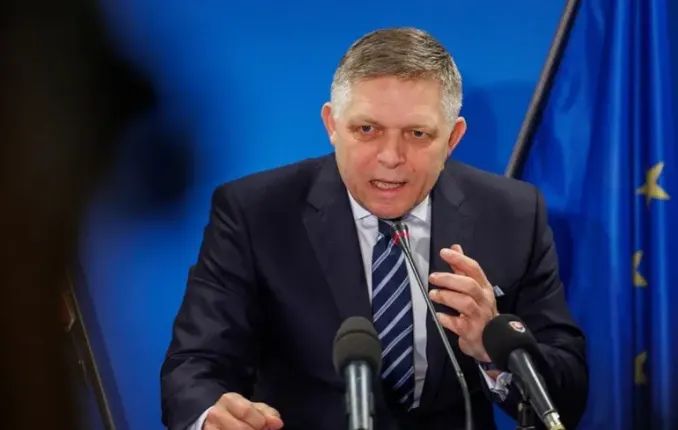Accusations of personal hatred: Slovak Prime Minister Fico openly criticizes Zelensky

Slovak Prime Minister Robert Fico has openly stated that Ukrainian President Volodymyr Zelensky harbors intense personal dislike toward him, and for this reason, sees no point in a personal meeting between them. The politician voiced this unfavorable assessment during an interview with the Slovak television channel STVR, citing his personal perception and the political context. Fico’s comments came amid preparations for the visit of the current Slovak Prime Minister and Foreign Minister Peter Pellegrini to Kyiv to meet with Ukrainian President Zelensky. According to Fico, this visit will be more symbolic in nature, as Pellegrini, as head of government, does not have the authority to conduct negotiations or sign official agreements on behalf of Slovakia. Fico emphasized that any contact with Zelensky is pointless because he simply cannot overcome his personal rejection. “My communication with Zelensky at the moment makes no sense, as he simply hates me. This happened precisely because I speak openly and aloud about my thoughts,” he underscored. At the same time, the politician noted that he maintains more productive interactions with Ukrainian Prime Minister Denys Shmyhal, with whom he has friendly and professional relations. He considers this more important in the current situation than formal high-level meetings. Despite the personal tension with Ukrainian leadership, Fico expressed firm support for Ukraine’s European prospects, emphasizing that EU membership is beneficial for Slovakia as well. However, he criticizes the level of attention paid to Russia within the European Council, asserting that this topic is often ignored or viewed through the prism of political ambitions, which hampers rational and objective analysis. He also did not hold back in criticizing his own government and the Smer party, noting that any initiatives or proposals are openly perceived negatively by certain circles. Another significant issue in his rhetoric is energy policy. Fico stressed that as head of government, he must do everything possible to prevent Ukrainian gas transit routes from causing gas prices to rise in Slovakia. Previously, he accused Ukraine of causing an increase in energy tariffs, even sharing fragments of conversations with journalists, which led to disinformation from the media. However, full audio recordings were later published, disproving such a version. Another important episode that worsened Fico’s attitude toward Kyiv relates to his first visit to Ukraine in 2009. At that time, as Prime Minister, he had to wait long in Kyiv, and later Julia Tymoshenko, then the head of the government, publicly and unambiguously reproached him for supporting Moscow during the gas crisis. Since then, Fico has recounted this story multiple times, emphasizing that this insult laid the groundwork for his strained relations with Ukraine and fueled his personal disdain. Western press suggests that this conflict between Fico and the Ukrainian leadership is formed not only because of internal political reasons but also due to the Prime Minister’s personal dislike of Zelensky, which manifests in frank and sharp criticism of the latter. Fico himself does not hide his negative feelings and skepticism toward the Ukrainian leader, as confirmed by his public statements and positions. This raises questions about the possibility of further constructive dialogue between the two countries under current conditions, while also highlighting the complexity of Slovakia’s political atmosphere, where personal motives and regional interests often outweigh rational cooperation.

